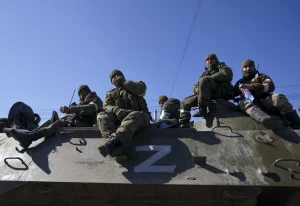
Armenia: Logistical hub for Russia's sanctions evasion scheme to support Putin's war?
Russian missiles are increasingly incorporating Western technology, raising concerns about the effectiveness of sanctions. Moscow appears to be sidestepping trade restrictions by enlisting the support of third-party countries
Insight News analyzed the allegations of Armenia being Russia’s hub for evading sanctions.
There has been extensive discussion among experts about allegations that Armenia is serving as a crucial supply hub for Putin in Russia's conflict with Ukraine.
Armenian firms involvement in Russia’s sanctions evasion
Recent reports indicate that Armenian companies are involved in the re-export of sanctioned goods to Russia via the Batumi-Novorossiysk sea route. The Armenian shipping company is said to be transporting 600 containers with a total weight of 6 tons to Russia every week via Georgian ports. Nicholas Chkhaidze, a research fellow at the Baku-based Topchubashov Center, provided this information.
This intricate Russo-Armenian operation covers a wide range of items, including automobiles, Western-made spare parts, and medical equipment. Vehicles, particularly of American origin, are frequently re-exported, typically through Georgian ports to Armenia. After registration in Gyumri, the vehicles are then re-exported to Russia, again passing through Georgia. These activities cast doubt on the effectiveness of sanctions imposed on Russia.
C&M International LLC operates the Batumi-Novorossiysk sea route with the participation of the Armenian Shipping Company and Black Maritime Forwarding LLC. Georgian companies, possibly unaware of the origin of the goods, are using Armenia to evade sanctions.
Armenian exports to Russia jumped 187% from 2021 to 2022, with speculation that Armenia plays a role in diverting Western products to Russia, helping Moscow evade sanctions. Armenia's strategic location makes it an important transit route between Western nations and Russia.
EU’s plans to penalize countries that help Russia circumvent sanctions
US and EU authorities uncovered a notable increase in the shipment of electronic components to Russia, identified as crucial for weapons production, particularly in the creation of Russian cruise missiles, as reported by the New York Times in April 2023.
Documentation obtained by the New York Times disclosed that senior tax and trade officials observed a rise in the sale of chips and electronic components to Russia through intermediary nations, notably Armenia and Kazakhstan. They provided details on the transit of eight highly sensitive chip types and other components considered vital for weapon manufacturing, including Russian cruise missiles deployed in attacks on Ukrainian cities and civil energy infrastructure.
Surge in electronic components and microchip imports
US and EU officials detected a surge in critical electronic components being delivered to Russia through third countries like Armenia. Armenia increased imports of microchips from the US by 515%, with 97% of these products shipped to Russia.
Armenia's imports of microchips from the US increased by 515%, with a significant portion re-exported to Russia, contributing to the $5 billion trade volume between Russia and Armenia in 2022.
Despite limitations on specific chips, Russia continued producing weapons with Western components after the start of the Ukraine war, as documented by Conflict Armament Research.
While Armenia considers changing its geopolitical orientation, business with Russian companies continues, and the country maintains pro-Russian economic policies.
France's decision to supply weapons to Armenia, a Russian ally, raises concerns about Western military technology ending up in Russia's hands.
Western technology in Russian cruise missiles
An investigation by Reuters in December 2022 highlighted how Russia circumvented sanctions by obtaining microchips from Western companies, even amidst sanctions imposed by the US and EU. Despite Western efforts to limit Russia's access to semiconductors, clear success has yet to be achieved, allowing Russia to continue evading sanctions and accessing vital technology components.
As the US and EU mobilize to provide anti-missile systems to Ukraine, Russia persists in deploying Western technologies in its attacks. The failure to prevent Russia from acquiring Western technologies for its armament poses a threat to Ukraine's victory and brings Putin's war closer to the EU's frontiers.
- News












































